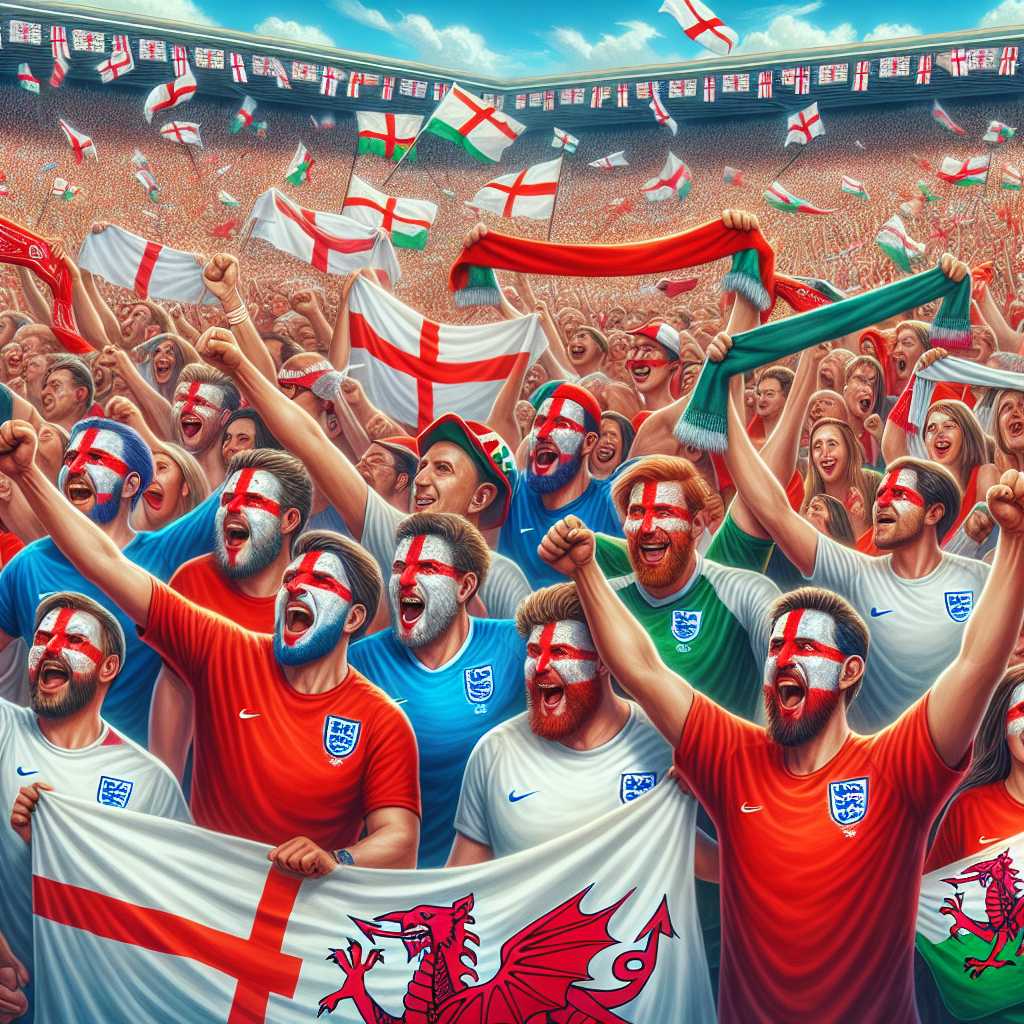The Historical and Competitive Dynamics of England vs Wales in Football and Rugby
The rivalry between England and Wales extends over centuries and is depicted at its fiercest on the sporting field. The nations’ most significant sporting contests are traditionally seen in football (soccer) and rugby, where they compete with both passion and pride. This article will provide insight into these contests, exploring the history, recent encounters, cultural significance, and memorable moments that define England versus Wales matches.
History of the Rivalry in Football
England and Wales have a football rivalry that goes back to the 19th century. They first met on the pitch on January 18th, 1879, making it one of the oldest international fixtures in the world. These encounters are not only a matter of neighborly competition but also hold great weight due to their statuses as members of the United Kingdom.
In football, the matches between the two generally occur within European qualifying campaigns or occasionally friendly matches. Due to England’s historic success in football compared to Wales—having won major tournaments like the World Cup—the encounters are often seen as a David vs. Goliath scenario for the Welsh.
The Intensity of Rugby Union Matches
The rivalry intensifies when we shift our attention to rugby union—a sport in which both countries have had substantial success. These confrontations happen primarily in the annual Six Nations Championship, a tournament steeped in history that involves six European teams.
Unlike in football, Wales often enters these contests on more equal footing with England. The traditional powerhouses compete fiercely for the pride of their nation. Home advantage is always keenly contested, with Twickenham Stadium hosting England and the Principality Stadium in Cardiff as home ground for Wales, both venues have witnessed extraordinary displays of national pride and passion.
Recent Encounters and Their Significance
In recent years, both rugby union and football contests between England and Wales have produced some thrilling and often controversial matchups.
In football, Wales’ remarkable run in UEFA EURO 2016 brought about a new era of Welsh football on a global scene, leading to increased excitement around fixtures with England. The regular inclusion of talented Welsh players in the Premier League means these fixtures still whet the appetite of fans on both sides of the border.
In rugby union, every encounter in the Six Nations is approached like a final by both sets of players and fans due to its impact on national standing in European rugby. For instance, memorable machinations include games that decided Grand Slams or acted as spoilers for championship hopes.
Cultural Impact and Fandoms
Matches between England and Wales ignite passions beyond just the sports themselves; they foster a sense of identity and national pride. For many Welsh fans, beating England can often feel like an affirmation of their nation’s unique cultural identity within the UK framework. Simultaneously, English fans enjoy asserting sporting dominance as a form of national prestige.
The fan base for each team plays a big part in each encounter’s atmosphere—songs such as “Swing Low, Sweet Chariot” for England rugby fans or “Bread of Heaven” sung by Welsh supporters create an immersive experience filled with historical resonance.
Memorable Moments in Matchups
Each sport has its cache of illustrious moments when England faced Wales. Outstanding performances from individual players, controversial refereeing decisions, high drama, and moments where games turned into legendary status have all occurred within these matches.
For instance, Paul Gascoigne’s spectacular goal against Wales at Wembley in 1991 remains fondly remembered by England football fans, while Welsh rugby’s dramatic late win over England at Twickenham in 2015 epitomizes how rivalry games can form part of national folklore.
Economic and Social Implications
Hosting an international fixture between England and Wales also has significant economic implications due to fan travel and consumption during match days. Moreover, successful results can bolster national morale and even influence social attitudes temporarily.
Internationally televised matches contribute considerably to each nation’s image abroad, showcasing not only their sporting talents but their cultural vibrancy.
